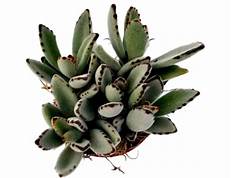Are Kalanchoe Pet Safe?
Kalanchoe is a genus of flowering plants in the family Crassulaceae. The genus contains about 125 species, which are native to Madagascar, tropical Africa, and India. Some Kalanchoe species are commonly grown as ornamental plants. The most popular species is Kalanchoe blossfeldiana, which is known as the Christmas kalanchoe or the flaming Katy. Other popular species include Kalanchoe luciae, Kalanchoe thyrsiflora, and Kalanchoe pumila.

Are Kalanchoe Pet Safe?
The answer is generally no, kalanchoe is not safe for pets. All parts of the plant, including the leaves, flowers, and stems, are toxic to pets if ingested. The toxic compound in kalanchoe is called bufadienolides, which can cause a variety of health problems in pets, including:
- Vomiting
- Diarrhea
- Nausea
- Abdominal pain
- Cardiac arrhythmias
- Seizures
- Death
The severity of the symptoms will depend on the amount of kalanchoe that is ingested and the size of the pet. If you think your pet has eaten kalanchoe, call your veterinarian immediately.
Symptoms of Kalanchoe Poisoning in Pets
The symptoms of kalanchoe poisoning in pets can vary depending on the amount of plant material that was ingested and the size of the pet. Some of the most common symptoms include:
- Vomiting
- Diarrhea
- Nausea
- Abdominal pain
- Cardiac arrhythmias
- Seizures
- Death
If you think your pet has eaten kalanchoe, call your veterinarian immediately.
Treatment for Kalanchoe Poisoning in Pets
There is no specific antidote for kalanchoe poisoning in pets. Treatment will focus on supportive care and managing the symptoms. This may include:
- Inducing vomiting
- Administering activated charcoal
- Providing fluids and electrolytes
- Monitoring the pet's heart rate and blood pressure
- Administering medication to control seizures
The prognosis for pets that have eaten kalanchoe depends on the amount of plant material that was ingested and the severity of the symptoms. With prompt treatment, most pets will make a full recovery.
How to Prevent Kalanchoe Poisoning in Pets
The best way to prevent kalanchoe poisoning in pets is to keep the plants out of reach of animals. If you have kalanchoe plants in your home, make sure they are placed on high shelves or in a room that is inaccessible to pets. You should also avoid using kalanchoe as a ground cover or in areas where pets may be able to access them.
If you think your pet has eaten kalanchoe, call your veterinarian immediately.
Declaration: All article resources on this website, unless otherwise specified or labeled, are collected from online resources. If the content on this website infringes on the legitimate rights and interests of the original author, you can contact this website to delete it.





